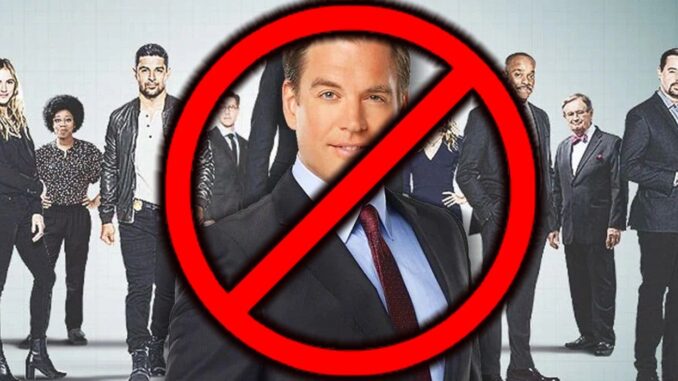
The Silent Desk and the Shifting Tides: Why Tony DiNozzo Left and What It Meant for NCIS
For thirteen seasons, Special Agent Anthony "Tony" DiNozzo Jr. was the irreverent, movie-quoting, often exasperating, yet undeniably charismatic heart of NCIS. His rapid-fire banter, charmingly inappropriate remarks, and deep-seated loyalty formed the very bedrock of the team's dynamic. Then, in the finale of Season 13, the desk stood empty. Tony DiNozzo, the once perpetual "junior" agent, left the NCIS family. His departure was not merely a cast change; it was the profound culmination of a character’s journey and, consequently, a seismic shift that redefined the very essence of the show.
Tony’s exit was, at its core, a testament to his profound personal growth. When we first met him, DiNozzo was a charming overgrown frat boy, perpetually seeking Gibbs’ approval while simultaneously mocking McGee and flirting with whoever crossed his path. His ambition was clear: to be Gibbs, to emulate his stoicism, his instinct, his legendary head-slap. Yet, over a decade, the cracks in his façade began to show. We witnessed glimpses of a man capable of immense compassion, fierce protectiveness, and a surprising depth of understanding. The seeds of maturity were sown through the crucible of countless cases, the loss of Kate, and especially the complex, transformative relationship with Ziva David. She challenged him, forced him to shed layers of cynicism, and revealed the genuinely good man beneath the bravado. His journey was a slow burn from a man-child avoiding commitment to someone capable of profound, selfless love.
The ultimate catalyst for his departure arrived in the most unexpected and poignant form: a child. The revelation that Ziva, presumed dead, had secretly given birth to their daughter, Tali, was an emotional bomb that detonated Tony’s carefully constructed world. This wasn't just a plot device; it was the culmination of his entire character arc. The "playboy" archetype, the "Gibbs-in-training" persona, suddenly felt insufficient, even meaningless, in the face of fatherhood. His final conversation with Gibbs, where he acknowledged that "something shifted," was less about Ziva's death and more about Tali's life. He had spent years learning from Gibbs how to be an agent, how to be tough, how to find justice. Now, he had a new teacher: a tiny, innocent life that called him not to a crime scene, but to a diaper bag and bedtime stories. DiNozzo didn't leave because he no longer loved the job; he left because he had found something he loved more, something that demanded a different kind of heroism, a different kind of commitment, away from the constant threat of danger that defined NCIS. His departure was his graduation from the "Gibbs Academy," not into another field office, but into the uncharted territory of fatherhood.
For NCIS, DiNozzo's departure left a gaping, palpable void. He was the team's comedic relief, its pop culture encyclopaedia, and often, its emotional barometer. His absence meant the loss of the rapid-fire movie quotes, the internal jokes, the playful teasing that lightened even the darkest cases. The bullpen, once a vibrant echo chamber of his voice, became noticeably quieter, more focused, arguably more serious. The immediate impact was felt most keenly by Gibbs, who lost his most enduring protégé, the one who understood his unspoken commands and shared his grim sense of humor. The comfortable rhythm of their interactions, the subtle nods and head-slaps, were gone.
But beyond the immediate loss of a beloved character, Tony's exit meant something far more profound for the show itself: evolution. His departure forced the series to shed its skin and embrace new possibilities. Tim McGee, long the nerdy junior agent, was finally compelled to step into a leadership role, growing into the Senior Field Agent position with a newfound confidence and gravitas. Eleanor Bishop, still relatively new to the team, had room to develop her unique investigative style without being overshadowed by Tony’s boisterous presence. The introduction of new characters like Nick Torres and Jacqueline Sloane filled the physical spaces but brought entirely different energies and dynamics, preventing the show from simply trying to clone DiNozzo.
In essence, Tony's departure forced NCIS to mature alongside its former second-in-command. It proved the show’s resilience, demonstrating that it could survive the loss of an iconic character and adapt. While some fans mourned the loss of the show's original alchemical blend, others found a new appreciation for its more grounded, less overtly comedic tone. The "family" dynamic shifted from a paternalistic structure, with Gibbs at the head and DiNozzo as the eldest son, to a more collegial, ensemble-driven unit.
In the end, Tony DiNozzo's departure from NCIS was a bittersweet inevitability. It marked the completion of a compelling character arc, a man choosing the profound responsibility of family over the allure of a dangerous, yet exhilarating, career. For the show, it was a necessary growing pain, a moment of unmooring that ultimately allowed it to find new anchors, redefine its core, and continue its improbable longevity. The empty desk was a silent monument not just to a beloved character who had found his true North, but to a series brave enough to let him go and, in doing so, embark on its own next chapter.